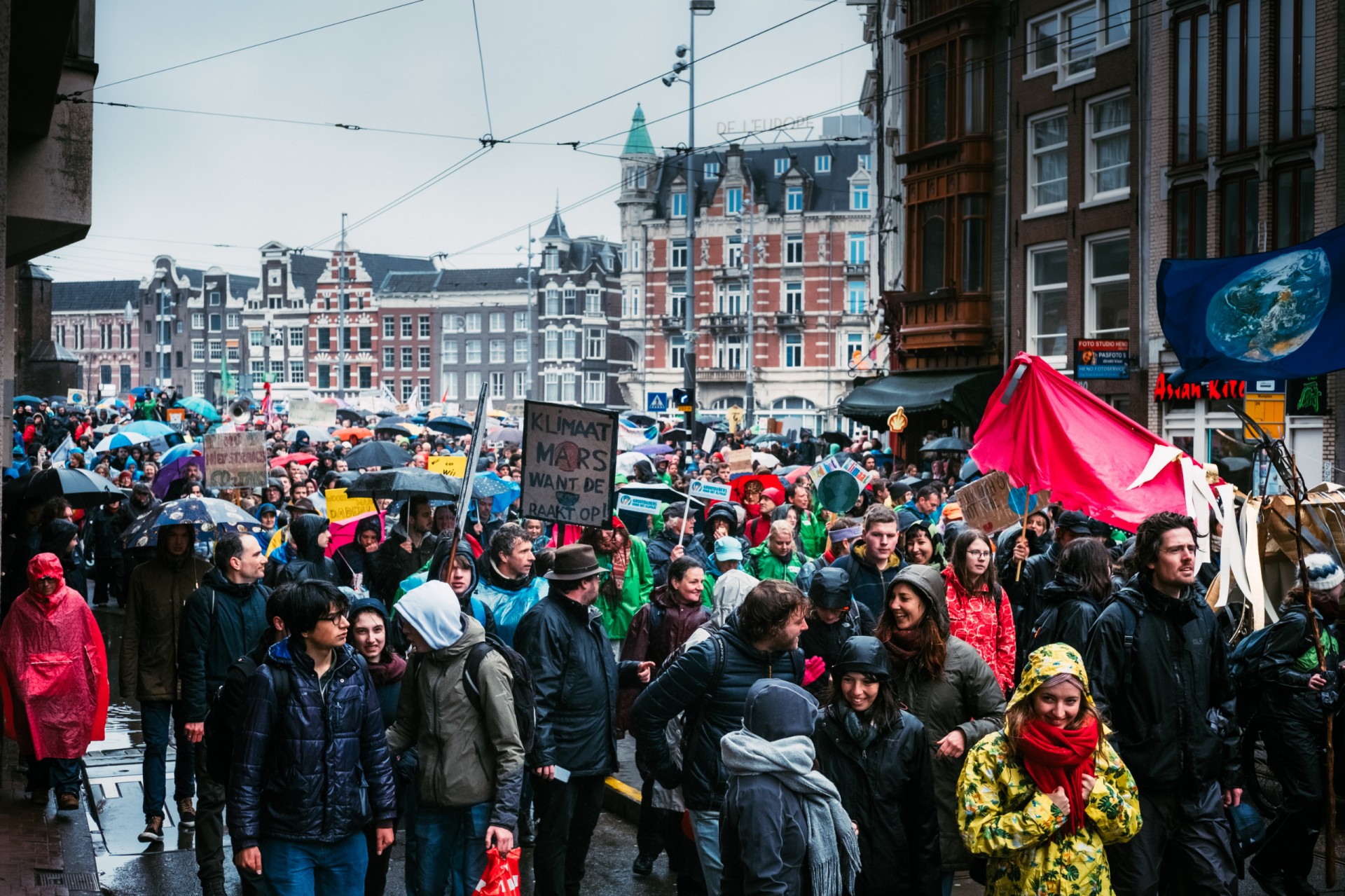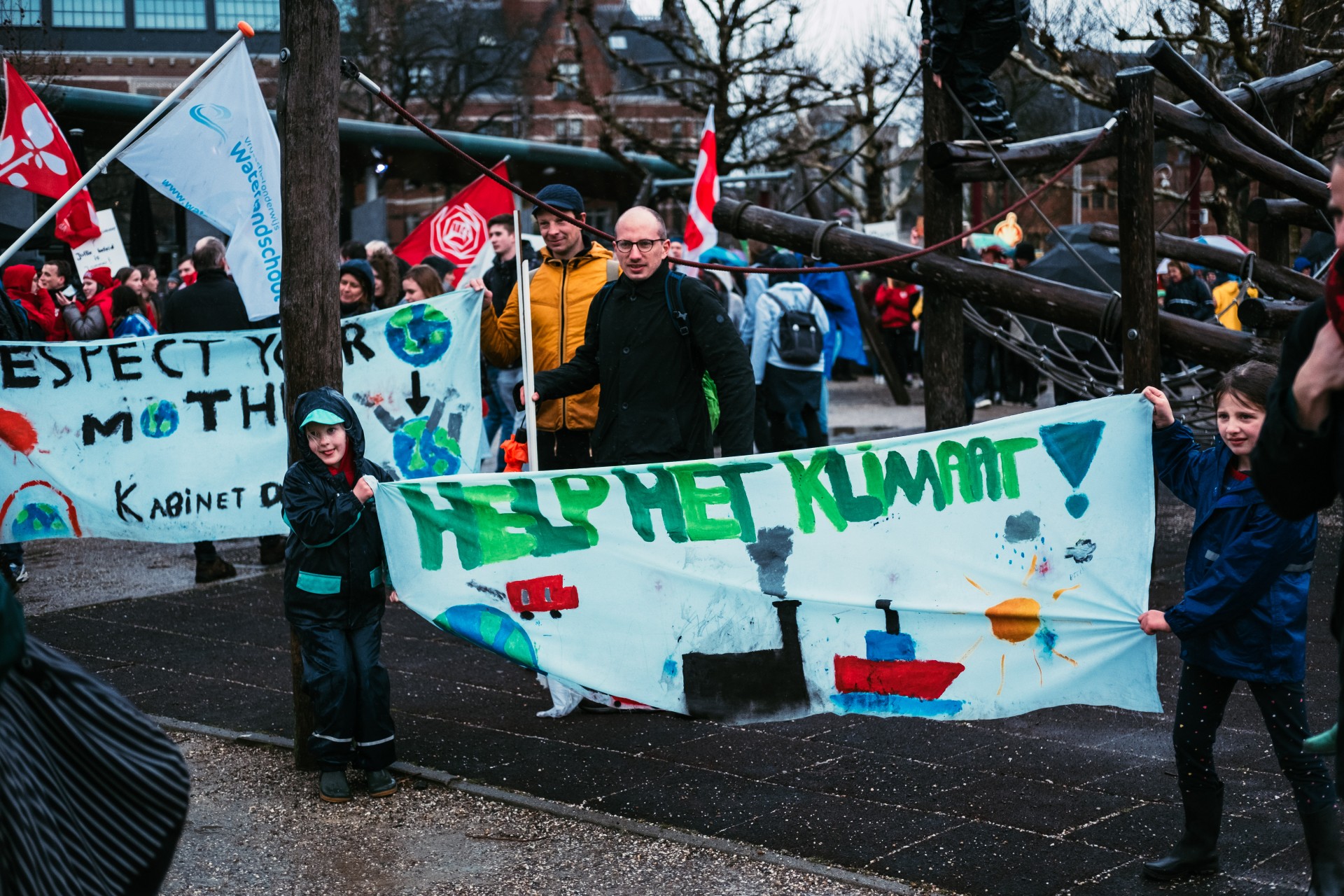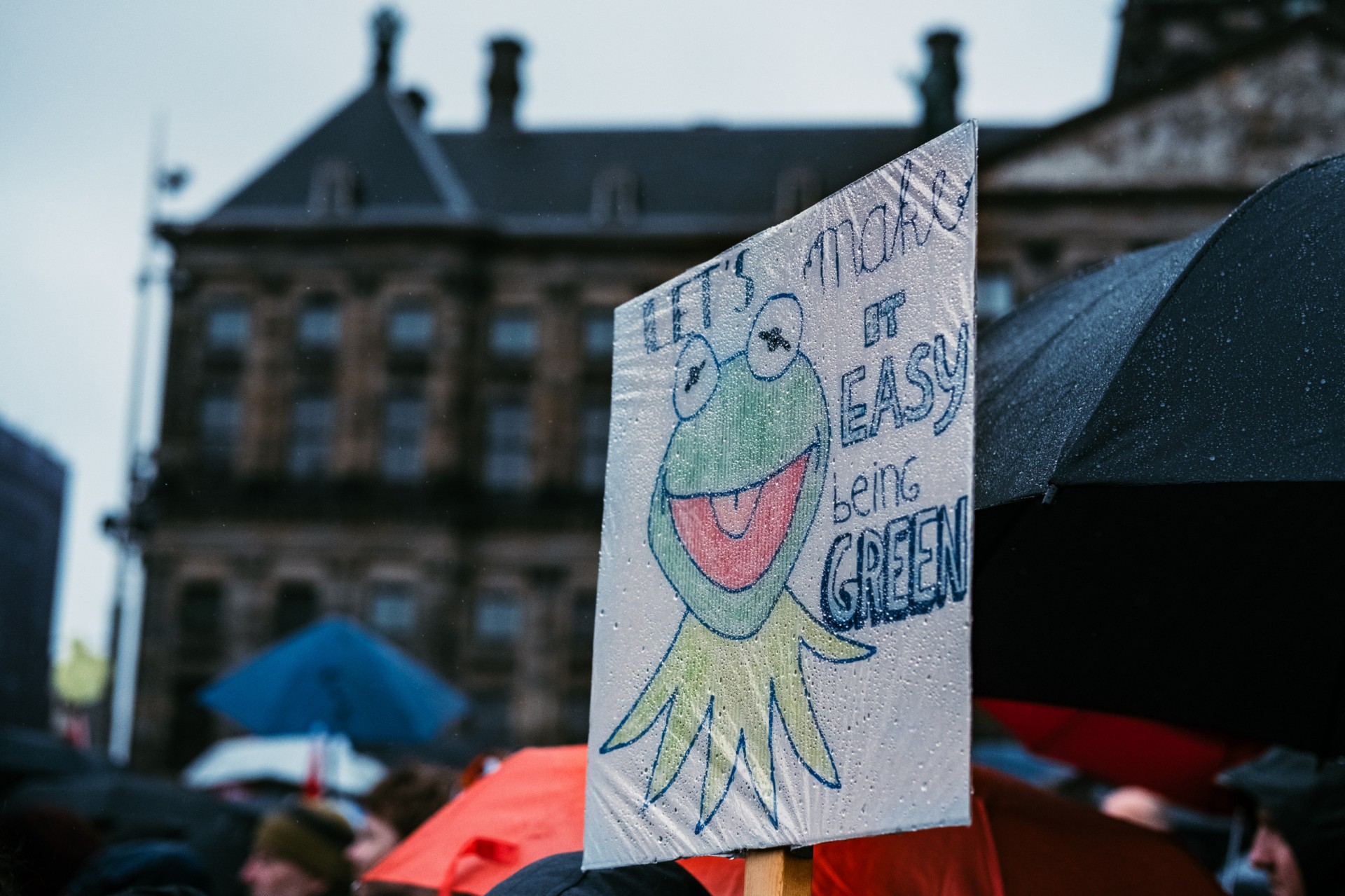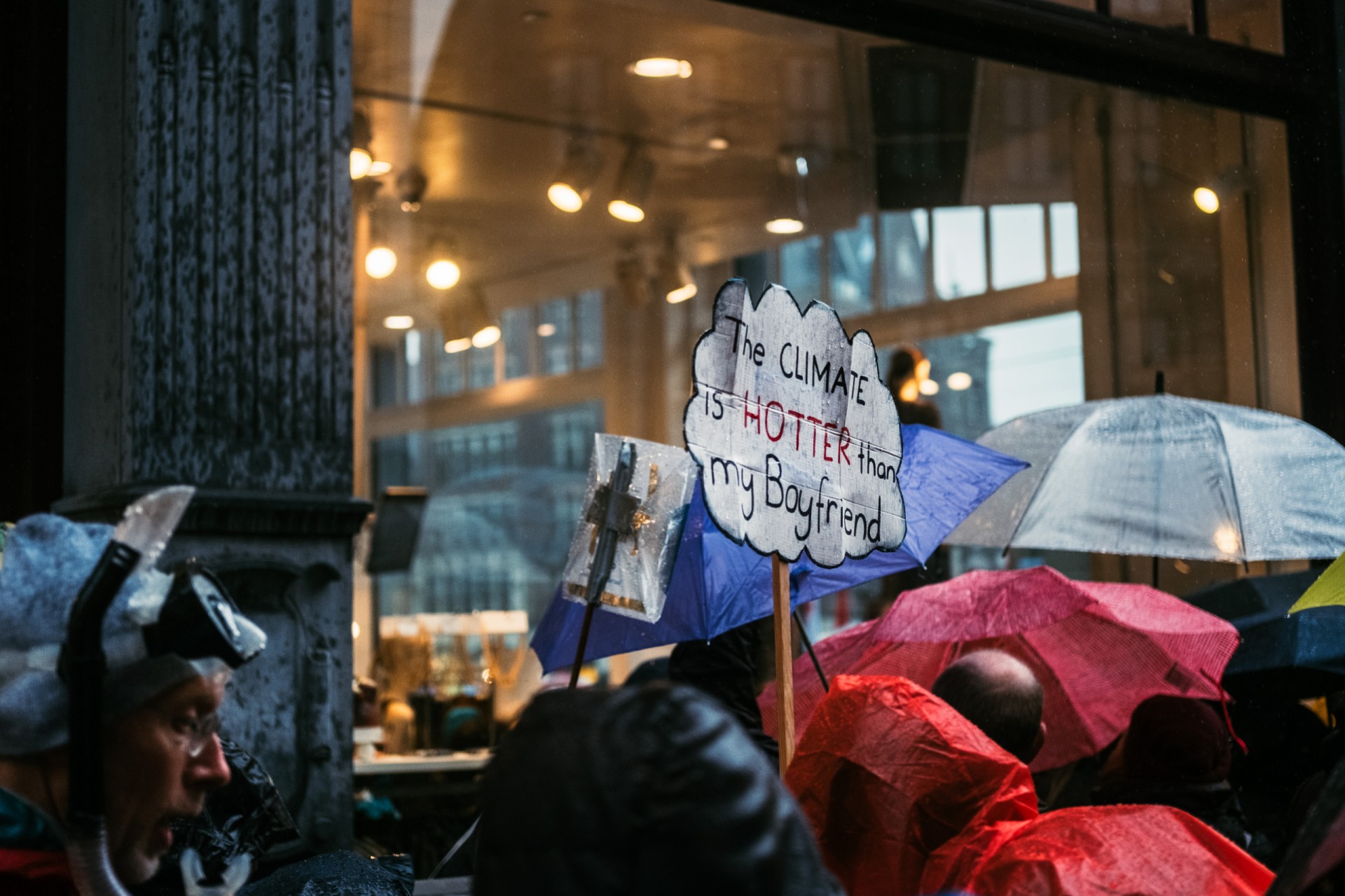On March 10th The Netherlands bore witness to its largest climate march to date. The People’s Climate March took place in Amsterdam with more than 40.000 people marching despite the cold and a torrential downpour.
The stereotype about the Dutch is that they love to complain about the weather. Having lived in the country for almost four years I can attest to it. The number one conversation topic is always how bad the weather has been, be it scorching hot (not that it ever really is in the lowlands), icy cold, windy, rainy or snowy. I’ve been thinking about this stereotype a lot since the march. Firstly because of the irony of complaining about the weather when it’s about to get much worse in the near future but more so because I didn’t hear anyone complain during the march despite the weather being absolutely horrible.

To be frank, my Dutch isn’t that great and most Dutch people are too tall for my ears but what I mean by the lack of complaint is the general vibe of the march rather than spoken words. The attitude around me wasn’t one of complaint but of solidarity. Solidarity between the Dutch and the later-comers, between the youngest and the oldest and between many different groups who attended the march, like environmental organisation Milieu Defensie, food awareness organisation Proveg, the ever-present Greenpeace, animal rights advocates Anonymous for the Voiceless, The Black LGBTQ+ block and many more. Over 40.000 people protesting in solidarity against the government’s inertia about the fast-approaching climate destruction.

For me, this feeling of solidarity, the amount of people who showed up in a rainstorm, and the stark discrepancy between the number of people who joined previous marches and this one (in 2018, only 8000 joined the climate march) is a testament to one thing: the people of the Netherlands are worried (much like the people of the world). They are worried about the future of our living planet and the future of its inhabitants. Worried about their own future, the future of their children and the future of humanity in general.
With the worry comes a feeling of desperation and confusion. What do we do? How do we stop humankind from destroying the planet? Do we fly less, carpool more? Do we eat less meat, grow our own food, remember to turn the lights off, stop using plastic bags?

Individual solutions like the ones I mentioned are often in the limelight when it comes to solutions to environmental issues. They are after all the most accessible for the people (there is a plethora of resources about what one can do to reduce their carbon footprint) and the most convenient for corporations. However, as accessible and as personally satisfying as they can be, individual solutions are surely not enough to tackle climate destruction. I’m not saying bringing your metal straw with you to cafes is detrimental to the planet’s health but it’s also virtually useless.
We only have a decade, possibly less, to reduce carbon emissions drastically if we’re going to keep the global temperature rise below two degrees, which by the way is still too high and will likely have devastating consequences. To achieve this, one of the major steps that global society needs to urgently take is policy change.
According to Hal Harvey, the author of Designing Climate Solutions: A Policy Guide for Low-Carbon Energy, policies in the industry, electricity, land-use, buildings and transportation sectors and a cross-sectoral carbon policy would increase the chances of staying below two degrees two percent.

And this is where the Dutch government fails. The Climate Change Performance Index (CCPI) 2019 ranks The Netherlands ranks 28th amongst the 56 evaluated countries and the European Union in general when it comes to actions and commitments to keep global warming below two degrees. Despite being in danger due to it’s under sea level status, the country’s politics have not caught up to its’ residents worries about the future. For a country as affluent as the Netherlands, this is unacceptable. As researcher Joeri Scholtens exclaims: “ How the hell can we fly less, shower less and drive electric while the state cheerfully subsidizes fossil fuels at € 7.6 billion a year?”

The People’s Climate March is both the result of relentless climate activism that has been underway for decades and the beginning of what’s to come if the Dutch government doesn’t start listening to its citizens and take action. It is also one of many of its counterparts all around the world. People of the world are asking their governments to protect the planet and their citizens instead of a select elite.




